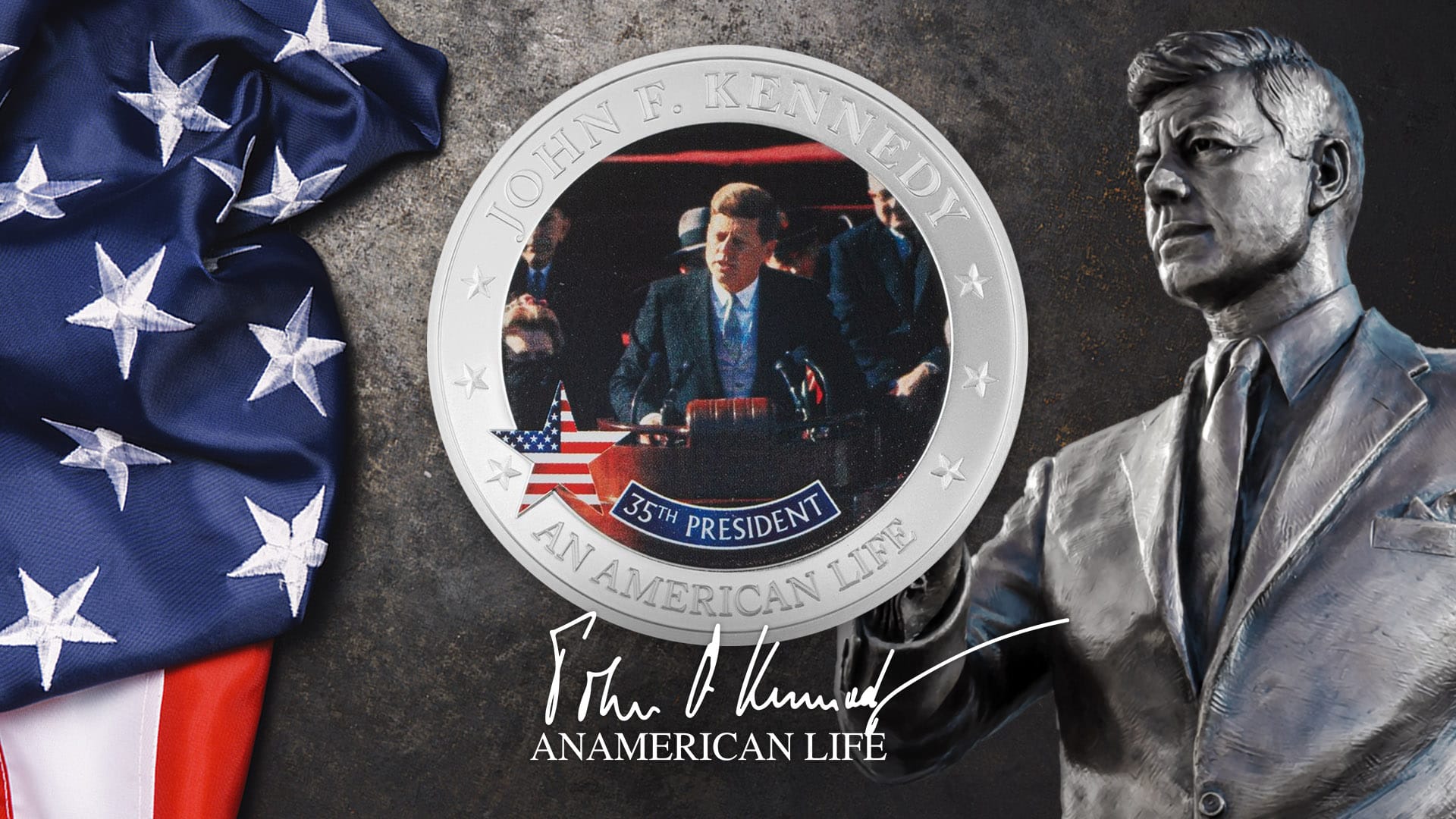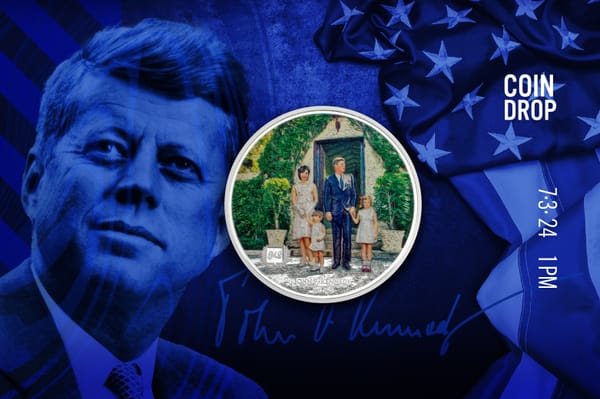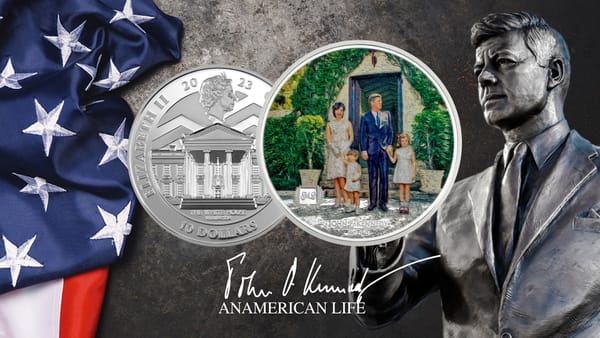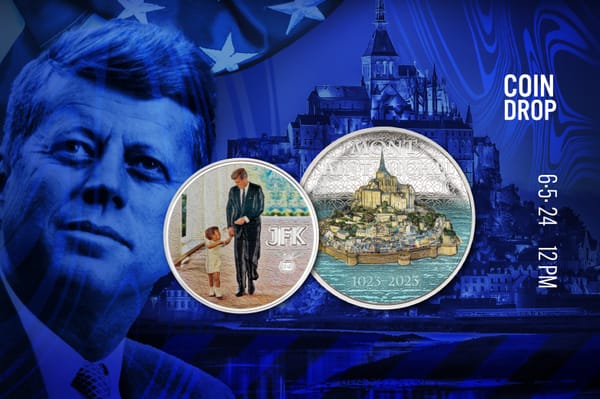JFK: The 35th President
JFK, 35th President of the United States of America
A reflection on the 35th American President and the accomplishments of his short administration.
America’s youngest elected President (beaten out for the title of youngest President only by Teddy Roosevelt, the Vice President who took office after the assassination of William McKinley) was John F. Kennedy, at age 43. In a tight 1960 race against VP Richard Nixon, Democratic candidate Kennedy squeaked by with a popular vote of 49.7% to Nixon’s 49.5%. It was a long-time dream of JFK’s to become President, although the challenging landscape facing him would have intimidated even a veteran leader.
The Soviet Union was at large as one of the world’s superpowers, and they had strong footholds in Germany post-WWII. The Cold War was in full swing, and just one year into John’s administration, the Soviets constructed the Berlin Wall to keep the citizens of Berlin from fleeing the bleak city. The nuclear arms race was also sprinting toward potential disaster, and the Soviet Union was making strides in the Space Race unparalleled by American efforts. JFK, having served as a member of the Senate and House of Reps for 13 years, who had a special interest in foreign policy, understood all of these issues and their implications for the U.S. In his 1961 inaugural speech, he delivered his famous lines: “Let every nation know, whether it wishes us well or ill, that we shall pay any price, bear any burden, meet any hardship, support any friend, oppose any foe, to assure the survival and the success of liberty…And so, my fellow Americans: ask not what your country can do for you—ask what you can do for your country.”
This speech was the beginning of many eloquent and memorable words that President Kennedy imparted to our country. A lover of the arts, poetry especially, part of John’s charm was his way with words and how he used them to inspire the nation to reach for peaceful solutions, positive change, and understanding toward our differences. One of his longest-lasting legacies was implemented just months after he took office, in March 1961, when his administration established the Peace Corps, with the support of young Americans all over the country. An organization whose purpose was to deliver aid to the world through service and charity, the Peace Corps remains in action today and allows people of all ages to travel to countries in need and teach, build, and share with people of all different cultures, religions, and life experiences.
John’s dedication to peace was tried over and over again in his dealings with the Soviet Union. Try as he might to negotiate an end to the development of nuclear weapons, it didn’t come until after the Cuban Missile Crisis of 1962 shocked the world. During the turf war over Cuba between the US and the Soviet Union and after Kennedy refused to put American boots on the ground during the Bay of Pigs, the Soviets grew bold. A US plane spotted their nuclear weapons testing sites on Cuban ground in October 1962. Within a week, President Kennedy had a naval quarantine placed around the island, preventing the Soviets from bringing in more supplies. Negotiations began immediately while the world held its breath, praying that nuclear war could be avoided. After another tense week, the Soviets agreed to remove their weapons and testing sites and in return, America would not invade Cuba, and would also remove secret missiles they had placed in Turkey. Soon after, at a UN conference, the two countries entered into another agreement, not to continue the development and testing of nuclear weapons on land, ocean, or in space, effectively stalling the threat of nuclear war to the relief of the entire world.
But it wasn’t just abroad that trouble brewed while John was President. There was considerable strife among American citizens, especially in the South, as racial tension grew. While the abolition of slavery and laws against segregation had both been ratified into law and deemed unconstitutional, Black Americans still struggled against ugly racism and prejudices. Activists like Martin Luther King Jr. were fighting against these societal issues, but with extreme opposition like Alabama Governor George Wallace, who publicly announced his support for segregation and went so far as to manually block Black students from entering Alabama universities, it became apparent that further federal action was necessary. In 1963, President Kennedy addressed the nation and labeled civil rights as a moral issue, one that severely impacted our ability as a nation to guarantee freedom to all of our citizens.
“If an American, because his skin is dark, cannot eat lunch in a restaurant open to the public, if he cannot send his children to the best public school available, if he cannot vote for the public officials who represent him, if, in short, he cannot enjoy the full and free life which all of us want, then who among us would be content to have the color of his skin changed and stand in his place?”
Though his words were in no way as consequential and important as the actions of the pacifist civil rights leaders of the day, Kennedy’s influence helped the American people understand the severity of the civil rights issue and the moral implications of defying the Constitutional rights of any Americans. In 1964, his work was improved upon when the Civil Rights Act was successfully passed by President Lyndon B. Johnson.
John F. Kennedy once said, “A man may die, nations may rise and fall, but an idea lives on.” How true those words ring today, in the silence he once filled with poetic soliloquies on the value of human life and the strength of peace. If there was one idea introduced to the world by him that has echoed throughout time most diligently, it would be his absolute dedication to peace among people and nations. Though he led for a short time, in this regard, his legacy prospers and has earned him a place in the 7k-exclusive, Miles Standish-designed ‘An American Life’ coin collection.




